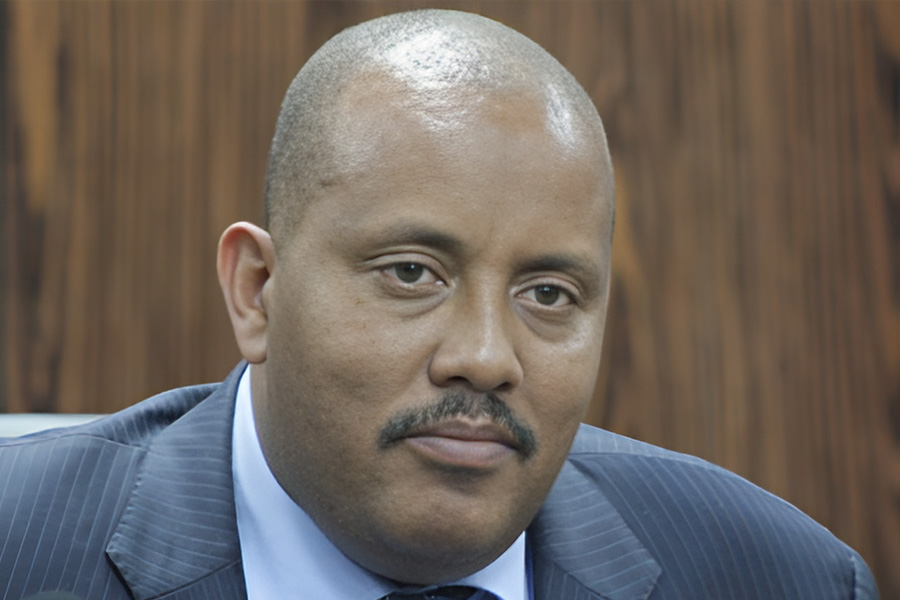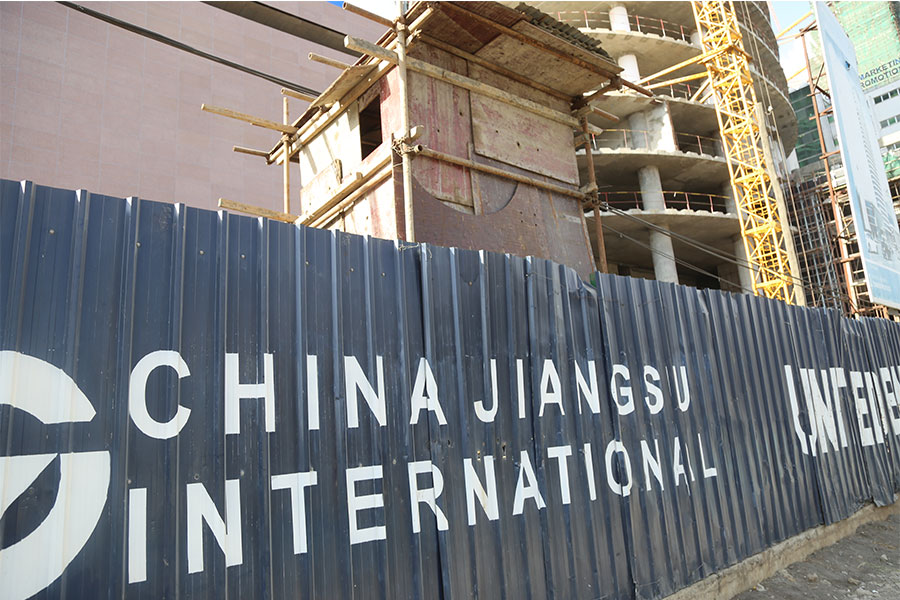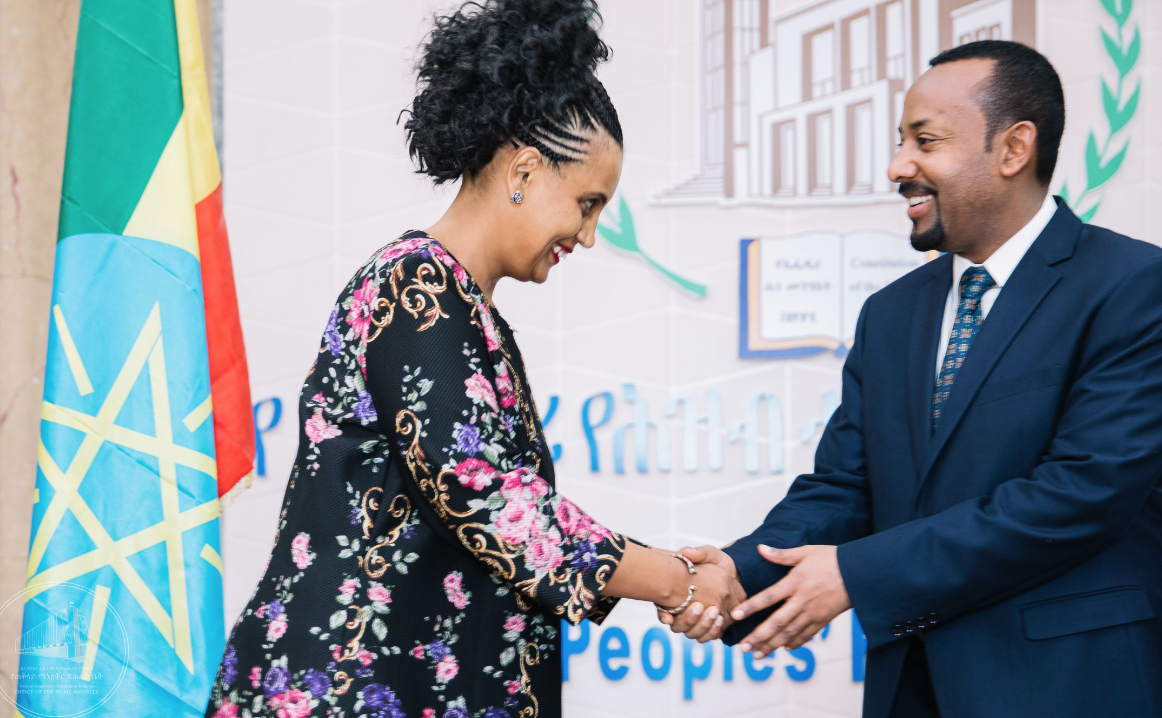
Fineline | Mar 16,2019
Aug 24 , 2019
By Dagmawi Gosaye Kebede (LL.M)
While lauding the improving relationship between Eritrea and Ethiopia to have a good and long-lasting friendship, their renewed relationship should be governed by clear and detailed agreements writes Dagmawi Gosaye Kebede (LL.M), a lecturer of international law at Wolkite University School of Law. He can be reached at dagidertogada28@gmial.com.
Ethiopia and Eritrea went to war for two years (1998-2000) over border disputes. The Algiers Peace Agreement concluded the war in 2000. This agreement established two commissions: the Boundary Commission that was empowered to arbitrate the border dispute between the two countries and the Claim Commission that was mandated to decide through binding arbitration all claims for loss, damage or injury.
The boundary commission passed a controversial decision in 2002, the validity of which was contested by Ethiopia. The Claim Commission, on the other hand, has found Eritrea responsible for beginning the war and awarded Ethiopia 10 million dollars in damages.
After these decisions, the two countries remained in a state of no war, no peace with minor skirmishes in border areas. Eritrea was insisting on the enforcement of the boundary commission’s decision as a whole and evacuation of the Ethiopian army from the Badme front, while Ethiopia was pushing for further negotiations and was hesitant of accepting the decision of the Boundary Commission. Thus, the two countries were in a diplomatic stalemate that lasted for more than 20 years. There were several peace-making initiatives by the United Nations, the African Union and other friendly states. However, none of these efforts was successful.
This changed in 2018, as a result of the internal political dynamics in Ethiopia. The new Prime Minister, Abiy Ahmed (PhD), began rapprochement with President Isaias Afeworki of Eritrea. This call for normalisation of relations was accepted, and the two countries signed a joint declaration of peace and friendship in Asmera in July last year.
After this declaration, the border between the two countries has been opened for social and economic transactions. Troops have started to evacuate from former war fronts, the full-scale use of ports of Assab and Massawa by Ethiopia is being facilitated, and flights between the two capitals have resumed. Transportation and movement of people and goods in the border area have been reinstated to almost their former status.
In September, the two countries signed the Jeddah Agreement on Peace, Friendship and Comprehensive Cooperation. This agreement provides for the promotion of extensive cooperation in the political, security, defence, economic, trade, and investment, cultural and social fields. The development of joint investment projects and the implementation of the boundary decision are other areas addressed by this agreement. Furthermore, the countries have agreed on the establishment of a high-level joint committee and sub-committees to guide and oversee the implementation of the agreement.
The normalisation of Ethio-Eritrean relations, if long-lasting, would be an asset for regional stabilisation. This can be demonstrated by the recent normalisation of relations between Eritrea and Somalia, as well as Eritrea and Djibouti. To this end, the respective government’s political commitment seems promising and positive. Their commitment to end supporting armed insurgencies can be considered as a sign of political determination for sustainable peace.
However, the inter-communal conflicts and violence Ethiopia has been facing in different parts of the country may have repercussions on their relationship. Likewise, the absence of a multi-party democratic system in Eritrea may have a negative impact as decisions are mostly uncertain and unpredictable. Nevertheless, the existence of a shared cultural, religious and historical tie between the people of these countries can be an asset in fully normalising their relationship.
The year-old rapprochement of the two countries is progressive in terms of resuming diplomatic relations, movement of persons, and economic gains. Yet the formalisation and institutionalisation of their relationships are weaker. Though the visits by the leaders of the two governments are fruitful in terms of relieving the post-conflict agony, the progress made so far in solving border closures and other differences is not well reported to the public. It is not clear if the recent visit of PM Abiy Ahmed (PhD) has addressed the repetitive border shutdowns by the Eritrean government.
The politics of the gulf region, the economic and military interest-based involvement of Saudi Arabia and UAE in the horn of Africa would have repercussions on the bilateral relation. But the two governments should focus on carefully settling these matters. In this regard, the contribution of PM Abiy Ahmed (PhD) in solving the pending Sudanese problem should be praised, as the situation of Sudan or the Horn as a whole can affect Ethio-Eritrean relations.
Ethiopia is a big landlocked country that has substantial natural resources including land and minerals, whereas Eritrea, though not relatively endowed with natural resources, owns seaports that are strategically located. This situation can serve as a basis for the mutual relationship of both countries. Even the pre- and post-conflict economic and political situations of the countries implies that the war was not really a border issue rather that of commercial interests. Therefore, the current relationship of the states should be devised in a way which balances the permanent economic interests of both people. The Jeddah Agreement should be implemented in an institutionalized manner to avoid potential conflicts.
The opening up of borders has been followed by the exodus of Eritrean refugees moving to Ethiopia. This may create another political and economic problem in Ethiopia, in which there already are a large number of internally displaced persons as a result of inter-communal conflict. Furthermore, in the absence of clear cut terms of trade in general, and currency exchange rate between the Ethiopian birr and the Eritrean Nakfa in particular, contraband trade is being conducted in border areas, and as a result, shortage of products like teff and benzene has been observed. Hence, the movement of persons and transportation vehicles should be controlled in joint institutional mechanisms ensuring the mutual economic benefit of both states.
According to the Jeddah Agreement, the countries are expected to enforce border decisions. The establishment of a high-level enforcement committee is expected to see to that. The issue of border demarcation is very sensitive and may lead to a renewed conflict. The implementation of the border decision should be made with the support of experts in international law and other pertinent expertise; the Ethiopian government should not repeat its mistake in the boundary commission arbitration. Additionally, the countries should learn from effective border and economic dispute settlement cases. For instance, the experience of the Nigerian and Cameroon Border Demarcation Commission in the Bakassi Peninsula Dispute would be worth considering as a border dispute settlement in an African Context. In the history of international law, the Bakassi Peninsula case is known to be one of the most effective dispute settlement instances involving both diplomatic channels and legal mechanisms. In due course of demarcating borders, the historical, cultural and social relationship of the people should be taken into account, and pertinent principles of international law like principles of equity should be considered in case of a deadlock.
The decisions of the boundary commission may not necessarily be implemented word by word; rather, the states should be flexible in permanently settling the issue and consider the interest of people living in border areas.
To have a good and long-lasting relationship between Eritrea and Ethiopia, their renewed relationship should be governed by clear and detailed agreements. It should not be forgotten that the two countries were in a state of war and diplomatic deadlock for a long time. The conclusion of agreements and their implementation should be looked into carefully. Informality should not prevail since the danger it pauses would be great. Conducting negotiations and making deals on a piece by piece basis would be vital to adequately address the economic and political interests of the two countries.
Moreover, the enforcement of agreements at a joint institutional level would be necessary to create long-lasting peace. Forums of discussion and engagement on the implementation of economic, political and social agreements or common issues should be arranged by both countries in a permanent fixture and institutionalized manner. Otherwise, the relationship may end up in being a temporary friendship for mutual political gain.
PUBLISHED ON
Aug 24,2019 [ VOL
20 , NO
1008]


Fineline | Mar 16,2019

Life Matters | Feb 06,2021

Fineline | Dec 25,2018

Fineline | Jan 11,2020

Sunday with Eden | Jul 09,2022

Editorial | Jul 01,2023

Verbatim | Feb 11,2023

View From Arada | Feb 16,2019

Viewpoints | Apr 02,2022

Election 2021 coverage | Jan 13,2020

My Opinion | 131819 Views | Aug 14,2021

My Opinion | 128203 Views | Aug 21,2021

My Opinion | 126147 Views | Sep 10,2021

My Opinion | 123767 Views | Aug 07,2021

Dec 22 , 2024 . By TIZITA SHEWAFERAW
Charged with transforming colossal state-owned enterprises into modern and competitiv...

Aug 18 , 2024 . By AKSAH ITALO
Although predictable Yonas Zerihun's job in the ride-hailing service is not immune to...

Jul 28 , 2024 . By TIZITA SHEWAFERAW
Unhabitual, perhaps too many, Samuel Gebreyohannes, 38, used to occasionally enjoy a couple of beers at breakfast. However, he recently swit...

Jul 13 , 2024 . By AKSAH ITALO
Investors who rely on tractors, trucks, and field vehicles for commuting, transporting commodities, and f...

Jul 5 , 2025
Six years ago, Ethiopia was the darling of international liberal commentators. A year...

Jun 28 , 2025
Meseret Damtie, the assertive auditor general, has never been shy about naming names...

Jun 21 , 2025
A well-worn adage says, “Budget is not destiny, but it is direction.” Examining t...

Jun 14 , 2025
Yet again, the Horn of Africa is bracing for trouble. A region already frayed by wars...

Jul 6 , 2025 . By BEZAWIT HULUAGER
The federal legislature gave Prime Minister Abiy Ahmed (PhD) what he wanted: a 1.9 tr...

Jul 6 , 2025 . By YITBAREK GETACHEW
In a city rising skyward at breakneck speed, a reckoning has arrived. Authorities in...

Jul 6 , 2025 . By NAHOM AYELE
A landmark directive from the Ministry of Finance signals a paradigm shift in the cou...

Jul 6 , 2025 . By NAHOM AYELE
Awash Bank has announced plans to establish a dedicated investment banking subsidiary...